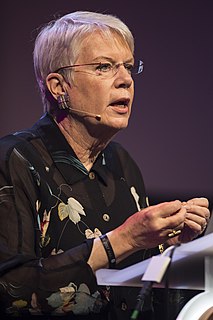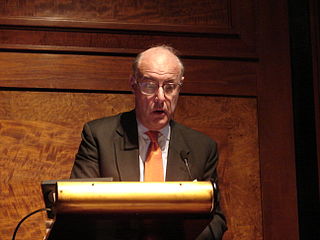A Quote by Rush D. Holt, Jr.
The level of concern and anxiety among scientists - and I guess I'd say the science-friendly public - about the place of science in society in government, has gone beyond concern to anxiety.
Related Quotes
I don't think any administration, when they come in, thinks that their job is to tell the scientists what the science looks like or to be quiet about the science. Scientists need to remain true and not allow science to be politicized. Scientists are not politicians, and no politician should consider themselves to be a scientist.
The private motives of scientists are not the trend of science. The trend of science is made by the needs of society: navigation before the eighteenth century, manufacture thereafter; and in our age I believe the liberation of personality. Whatever the part which scientists like to act, or for that matter which painters like to dress, science shares the aims of our society just as art does.
Charitable endeavour exalts the prestige and the status of the giver. This may sound unduly cynical but as with all philantrophic activity, it is not easy to unravel the mutually reinforcing motives of selflessness and self-interest. All that can safely be said is that most members of the royal family have difficulty distinguishing between concern about society, concern about the social order and concern about what best to do so they can remain at the top of it.
There needs to be a public dawning - and it is beginning to dawn on some members of the public - that how science is practiced actually makes a difference in their lives. If evidence becomes optional, if ideological assertions or beliefs are just as good as scientifically vetted evidence, then their quality of life suffers. I think that's dawning on people. There's a level of concern unlike anything I've seen.
Scientists blame the audience for being too stupid, shallow, or lazy to understand. There has been a fascinating debate in the blogosphere lately about communicating science to the public, and it's clear that most scientists just don't get it. They can't be bothered to talk to real people. Nobody will care about your issues if the price they have to pay is listening to a long lecture from Morton the science bug.
During my span of life science has become a matter of public concern and the l'art pour l'art standpoint of my youth is now obsolete. Science has become an integral and most important part of our civilization, and scientific work means contributing to its development. Science in our technical age has social, economic, and political functions, and however remote one's own work is from technical application it is a link in the chain of actions and decisions which determine the fate of the human race. I realized this aspect of science in its full impact only after Hiroshima.
































